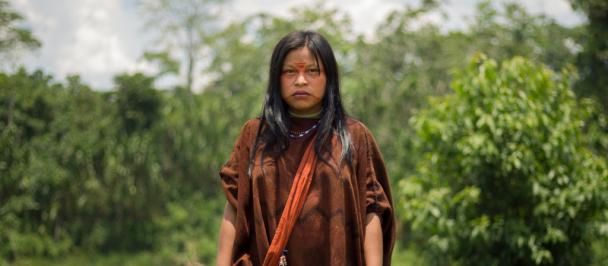One of the reasons the Sustainable Development Goals (SDGs) and the 2030 Agenda are a transformative development framework is that they are based on human rights. Over 90 percent of the goals and targets of the SDGs correspond to human rights obligations. As Member States make progress on the SDGs, they make progress on their human rights obligations – they are two sides of the same coin.
One important indicator of progress in the SDGs is the existence of independent national human rights institutions (NHRIs) which comply with international standards (known as the Paris Principles). NHRIs help address inequality and discrimination by receiving and addressing complaints and advising governments on rights-based legal frameworks. NHRIs also serve as bridges between civil society and the state. They help build the capacity of human rights defenders, prevent human rights violations from taking place, and build strategies for the inclusion of marginalized people in all aspects of society.
Currently, 79 of all 193 UN Member States (39 percent) have NHRIs that are fully compliant with international standards. Seven countries have achieved this milestone since 2015. Several other Member States have NHRIs working towards compliance. However, at the current rate of progress, only 54 percent will have these critical institutions by 2030. This is not enough to make the change we need to see. The international community can do more to support NHRIs and Member States must do more to establish and support them.
In UNDP we have deliberately and actively focused on supporting NHRIs. With our engagement, and often in the context of our Tri-Partite Partnership (with the UN Human Rights Office and the Global Alliance of NHRIs), institutions from 90 countries have been strengthened since 2008.
The work of NHRIs can also help identify some of the big issues people face and how different populations experience them. For example, from 2016-2018, UNDP in partnership with the Ombudsman’s office in Ukraine supported civil society to reach out to nearly 200 representative groups to gain a better understanding of people’s perceptions of human rights challenges. In addition, UNDP supported the National Human Rights Commission of Bangladesh to hold a consultation with human rights defenders in 2018 and is currently supporting the commission to develop operational guidelines to promote and protect their work.
Across the world, NHRIs are making a difference for human rights and for sustainable development – we need to harness our efforts to ensure more countries benefit.
These efforts will go a long way towards building strong national human rights systems and will help ensure that the SDGs work for everyone.
@sarahrattray1

 Locations
Locations
